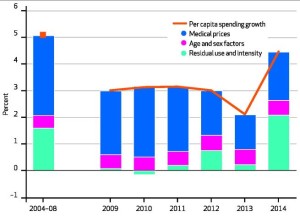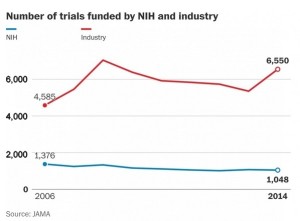- Ethical Dilemmas for Health-System Pharmacists Projected to Intensify (pharmacytimes.com)
Health-system pharmacists will inevitably face growing ethical challenges as their roles in patient care continue to evolve...ethical dilemmas embedded in health-system pharmacists’ everyday practice include competing interests, limited resources due to drug shortages, and an evolving health care delivery system that has shifted their role from dispensing medications to actively participating in direct patient care...One of the hot-button ethics issues in pharmacy currently is the trend of skyrocketing prescription costs and the lack of transparency in drug pricing decisions. Extremely high prices and lagging reimbursement may preclude health-systems from providing necessary medications to all patients who would otherwise benefit..."Patient welfare is at risk when the ethical perspective in health care is smothered by business and financial perspectives,"..."Patient well-being often hinges on the ability of health professionals to heed the ethical precepts of their calling."...Pharmacists are currently vying to gain support for an expanded role in patient care in the form of provider status, which will likely be more easily garnered if they are perceived as being on the side of patient care rather than the side of business interests.
- Survey: Employers taking action to cut specialty drug coverage (drugstorenews.com)
Employers are taking significant action to reduce their exposure to rising costs associated with specialty medicines...Although pharmacy represents approximately 20% of employer-sponsored medical benefits costs, it is increasing at a rate that accounts for roughly half of medical cost inflation and should be a top priority for employers...The price, utilization and delivery of specialty prescription drugs, many of which require special handling or delivery, are a top pain point for employers...employers are beginning to consider new aggressive approaches... employers have added new coverage and utilization restrictions for specialty pharmacy, such as requiring prior authorization or limiting quantities based on clinical evidence... employers plan to exclude compounds from their benefit coverage...the compounding process results in higher cost and their use may not be FDA-approved in compound form, health insurers increasingly will not cover them...
- ADHD drugs may be a prescription for bullying (reuters.com)
Kids and teens who take prescription medicines to treat attention-deficit hyperactivity disorder may be twice as likely to be bullied as their peers who don’t have this mental health problem… Adolescents who sold their prescribed drugs to other kids – who might want the stimulants for study or diet aids – had more than four times greater odds of being bullied than their peers without ADHD…Our findings show that there is some connection between a prescription for stimulant medications and bullying, even after accounting for the fact that adolescents with ADHD may have difficulties with peers or may have other problem behaviors associated with victimization…
- Eli Lilly’s Swiss lab closure worries animal rights group (reuters.com)
Eli Lilly's plan to close a Swiss laboratory that conducts tests and experiments on live animals has caused concerns by a local animal welfare group over the fate of the facility's hundreds of dogs, cats and livestock…company said…it was working to secure new owners for many of the animals as its Elanco animal health company may shut the research center in the Swiss town of Saint-Aubin…Julika Fitzi, a veterinarian and lawyer who works with the group Swiss Animal Protection, worries many may be killed…the laboratory houses about 350 dogs, 170 cats, 280 sheep, cattle and pigs and about 200 mice, figures that Eli Lilly didn't confirm…The expected closure comes as Eli Lilly looks to concentrate some of its Swiss research activities in Basel following its acquisition of the animal health business of Novartis earlier this year…Elanco's spokeswoman…said on Thursday the company will make a final decision on the Saint-Aubin research site later this month…if it is closed the company's primary plan for so-called "companion animals" such as cats and dogs would be "transfer of ownership to other facilities and employee pet owners."
- The testing of new drugs is on the rise. Why that worries some people. (washingtonpost.com)
As the budget for the National Institutes of Health, the nation's largest funder of biomedical research, has flatlined over the past decade, the number of clinical trials funded by the federal agency has dramatically declined, a new study has found. At the same time, the number of trials funded by the pharmaceutical industry has exploded...Meanwhile, the number of NIH-sponsored trials fell from 1,376 registered on a website in 2006 to 1,048 by 2014, according to the study, which was published in the Journal of the American Medical Association. Industry-sponsored trials grew by about 2,000 over the same period, reaching 6,550 registered in 2014...More trials is generally a good thing...because it means that more new drugs, devices or other treatments are being tested. But the decline in federally funded trials concerns public health researchers, because federally funded trials are independent, often intended to compare drugs or other treatments instead of simply to show that a product works and should gain federal approval…there are many areas of deserving research...there may need to be a formal discussion of how research dollars are spent. A reasonable way to begin...is to look at the burden of a particular disease and allotting research dollars to those that have the greatest effect on mortality and disability...
- China superbug has already gone global, Danish researcher says (fiercepharmaasia.com)
Never mind that report in a scientific journal last month that a new superbug resistant to all antibiotics might go global. It already has, according to a scientific magazine…Danish researcher Frank Aarestrup said he has found the mcr-1 gene in one person in Denmark and in 5 samples from poultry meat imported from Germany more than two years ago. He said the gene is the same as the one found in China…The finding that bacteria with that gene were resistant to the last-standing effective antibiotic, colistin, prompted fears of apocalyptic germs spreading around the world. The discovery at Southern Agricultural University in China was believed to be the first case of mrc-1 (mcr-1) found in humans…If the gene's presence leads to a global pandemic, infections that normally would be treated with antibiotics would become incurable unless new types of antibiotics make their way onto the market in time.
- National Health Spending In 2014: Faster Growth Driven By Coverage Expansion And Prescription Drug Spending (content.healthaffairs.org)

Factors Accounting For Growth In Per Capita National Health Expenditures, Selected Calendar Years 2004–14
US health care spending increased 5.3 percent to $3.0 trillion in 2014. On a per capita basis, health spending was $9,523 in 2014, an increase of 4.5 percent from 2013. The share of gross domestic product devoted to health care spending was 17.5 percent, up from 17.3 percent in 2013. The faster growth in 2014 that followed five consecutive years of historically low growth was primarily due to the major coverage expansions under the Affordable Care Act, particularly for Medicaid and private health insurance, which contributed to an increase in the insured share of the population…growth in total retail prescription drug expenditures accelerated sharply, increasing 12.2 percent to $297.7 billion…The strong growth in prescription drug expenditures in 2014 was caused by increased spending on new medicines, a smaller impact from patent expirations than in previous years, and price increases for brand-name drugs. The single largest driver of growth in specialty drug spending in 2014 was the impact of new treatments for hepatitis C, which contributed $11.3 billion in new spending.
The Affordable Care Act | Factors Accounting For Growth | Revisions To The National Health Expenditure Accounts | Sponsors Of Health Care | Private Health Insurance | Medicaid | Medicare | Out-Of-Pocket Spending | Retail Prescription Drugs | Hospital Care | Physician And Clinical Services
- FDA launches Web-based precision medicine platform for next-generation sequencing (healthcareitnews.com)FDA Launches precisionFDA to Harness the Power of Scientific Collaboration (blogs.fda.gov)
Food and Drug Administration...launched the beta version of precisionFDA, its new collaborative platform for the exploration of next-generation gene sequencing...First announced in August, the platform features more than 20 public and private sector participants…Next-generation sequencing enables researchers to compile a vast amount of data on a person's exact order or sequence of DNA...scientists can look for meaningful differences in DNA that can be used to suggest a person's risk of disease, possible response to treatment and assess their current state of health. Ultimately, what we learn about these differences could be used to design a treatment tailored to a specific individual...The hope is to grow this community and improve the usability of precisionFDA in the coming months and years...One way we'll achieve that is by placing the code for the precisionFDA portal on the world's largest open source software repository, GitHub, so the community can further enhance precisionFDA's features...
- How scientists rank drugs from most to least dangerous — and why the rankings are flawed (vox.com)
There's a very common drug-policy talking point that's meant to convey the absurdity of the war on drugs: Alcohol is more dangerous than marijuana, even though alcohol is legal and marijuana is not…Perhaps the biggest supporting evidence for this point is a 2010 study published in The Lancet that ranked alcohol as the most dangerous drug in the United Kingdom… Although drug policy experts generally don't dispute the assertion that alcohol is more dangerous than pot, the study, led by…David Nutt, is quite controversial. Experts see the rankings as deeply flawed, largely because they present the harms that come from drugs in a rather crude, one-dimensional manner. Even Nutt has acknowledged that the study is imperfect…There probably isn't a perfect way to evaluate and present all drug harms. Researchers will always need to balance making information simple and accessible for policymakers and the public with the inherent complexity of drugs and their effects. This makes the task of building scientific drug policies very challenging…The analysis may be flawed, but its simplicity and accessibility have won over many policy circles.
- Prisons can lock up savings by treating inmates with hepatitis C (statnews.com)
Here’s a chance to lock up some savings…The high cost of hepatitis C drugs may be straining budgets nationwide, but the country can save money if prison inmates are screened and treated for the disease… researchers determined that treatment could lower infection among both prisoners and society…If more inmates are treated, the disease would be less likely to spread within prisons, where an estimated 17 percent of the population is already infected. Beyond that, hepatitis C would be less likely to spread in the wider population once inmates are released. About 1 percent of the general US population is believed to have hepatitis C…screening and treatment would require an added 12.4 percent increase in the health care budgets of state and federal prisons during the first year such an effort is undertaken. But that would eventually decline to an annual budget increase of less than 0.7 percent after 15 years…prices have prompted many public and private payers to restrict access to treatment…a...class action lawsuit was filed earlier this year by two inmates in Massachusetts state prisons for failing to provide hepatitis C treatment to most infected prisoners…






